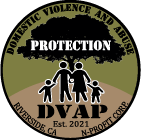Talking to a loved one about domestic abuse is one of the most difficult yet significant conversations you can have. Domestic violence often exists behind closed doors, and survivors may feel trapped, ashamed, or afraid to speak out. However, reaching out to someone in a compassionate and supportive way can make a profound difference in their life. This article provides practical advice for initiating these sensitive conversations, recognizing signs of abuse, and offering the right kind of help.
Recognizing the Signs of Domestic Abuse
Before starting a conversation, it’s essential to be aware of the common signs of abuse. These may vary depending on the situation but could include:
- Physical Indicators: Unexplained bruises, cuts, or injuries that seem inconsistent with the explanations given.
- Behavioral Changes: Withdrawn behavior, heightened anxiety, or a visible shift in mood and demeanor.
- Control and Isolation: If a partner seems overly controlling, isolates them from loved ones, or frequently monitors their whereabouts.
- Financial Dependence: Limited access to financial resources or being fully dependent on their partner for money.
Understanding these signs can help you approach the topic with clarity and care.
Choosing the Right Moment and Approach
Initiating a conversation about domestic abuse requires sensitivity both in terms of timing and your approach. Here’s how you can prepare:
- Find a Safe Space
Speak in a private, safe environment where the person feels comfortable and protected from interruptions.
- Be Calm and Non-Judgmental
Use a soft and patient tone. Avoid jumping to conclusions or expressing anger toward the abuser, as this may cause the survivor to pull back.
- Express Concern
Frame the conversation around your concern for their well-being. For example, you could say, “I’ve noticed some things that have me worried about you, and I want to help if I can.”
- Listen Without Pressure
Allow them to share as much or as little as they feel comfortable discussing. Don’t overwhelm them with questions. Instead, listen actively and with empathy.
What to Say — and What Not to Say
The words you choose matter greatly. Survivors may feel ashamed, guilty, or fearful of being judged. Here’s how to approach the conversation with care:
What to Say:
- “I’m here for you, no matter what.”
- “You don’t deserve to be treated this way.”
- “It’s not your fault.”
- “You’re not alone, and there are people who can help.”
What Not to Say:
- “Why don’t you just leave?”
- “Are you sure it’s really that bad?”
- “I would never allow someone to treat me like that.”
- Any statements that place blame on the survivor for their situation.
Instead, empower them by offering emotional support and letting them make their own decisions.
Providing Emotional and Safety Support
Survivors often need time to process their situation and decide on their next steps. Your role is to offer steady support without pressuring them. Here’s how:
- Validate Their Feelings
Acknowledge their emotions and reassure them that their feelings are valid, whether they express fear, confusion, sadness, or anger.
- Help Them Create a Safety Plan
If they’re ready, discuss steps to stay safe, such as identifying trusted friends or family members they can turn to, keeping important documents in a secure place, and planning escape routes if necessary.
- Offer Resources Without Forcing Them
Share information about local resources, such as shelters, hotlines, and support groups. For example, DVAP in Riverside provides 24-hour help and secure protection for survivors.
- Check in Regularly
Survivors may not immediately act on your suggestions, and that’s okay. Continue to check in and remind them that your support is unwavering.
Highlighting Available Resources for Assistance
Providing access to resources can offer survivors the tools they need to take action when ready. Here are some supportive organizations and services in California, particularly in Riverside:
- National Domestic Violence Hotline
Call 1-800-799-SAFE (7233) or text “START” to 88788 for confidential, 24/7 support.
- Local Emergency Services
If someone’s safety is immediately at risk, call 911.
- DVAP (Domestic Violence and Abuse Protection, Inc.)
Located in Riverside, California, DVAP offers both emotional and legal support for survivors, including protection plans beyond what a restraining order can provide.
Remember, simply presenting these resources in a non-pushy way can empower your loved one to seek help at their pace.
Having a conversation about domestic abuse is challenging but can be lifesaving. The key is to approach the topic with compassion, patience, and understanding. Your loved one needs to feel supported, not judged or pressured, as they face immensely difficult decisions. Every small step you take to help can play a vital role in their path to safety and healing.
Are You Experiencing Domestic Violence or Abuse? DVAP Is Here To Help
Domestic Violence and Abuse Protection, Inc. is a non-profit organization committed to protecting the victims of domestic abuse. When restraining orders are not enough, we are there to provide the determined protection you deserve. We are located at 3900 Orange St. Riverside, CA. Call us at (951)-275 8301 (24 hours). Alternatively, you can email us at admin@dvapriverside.org.






